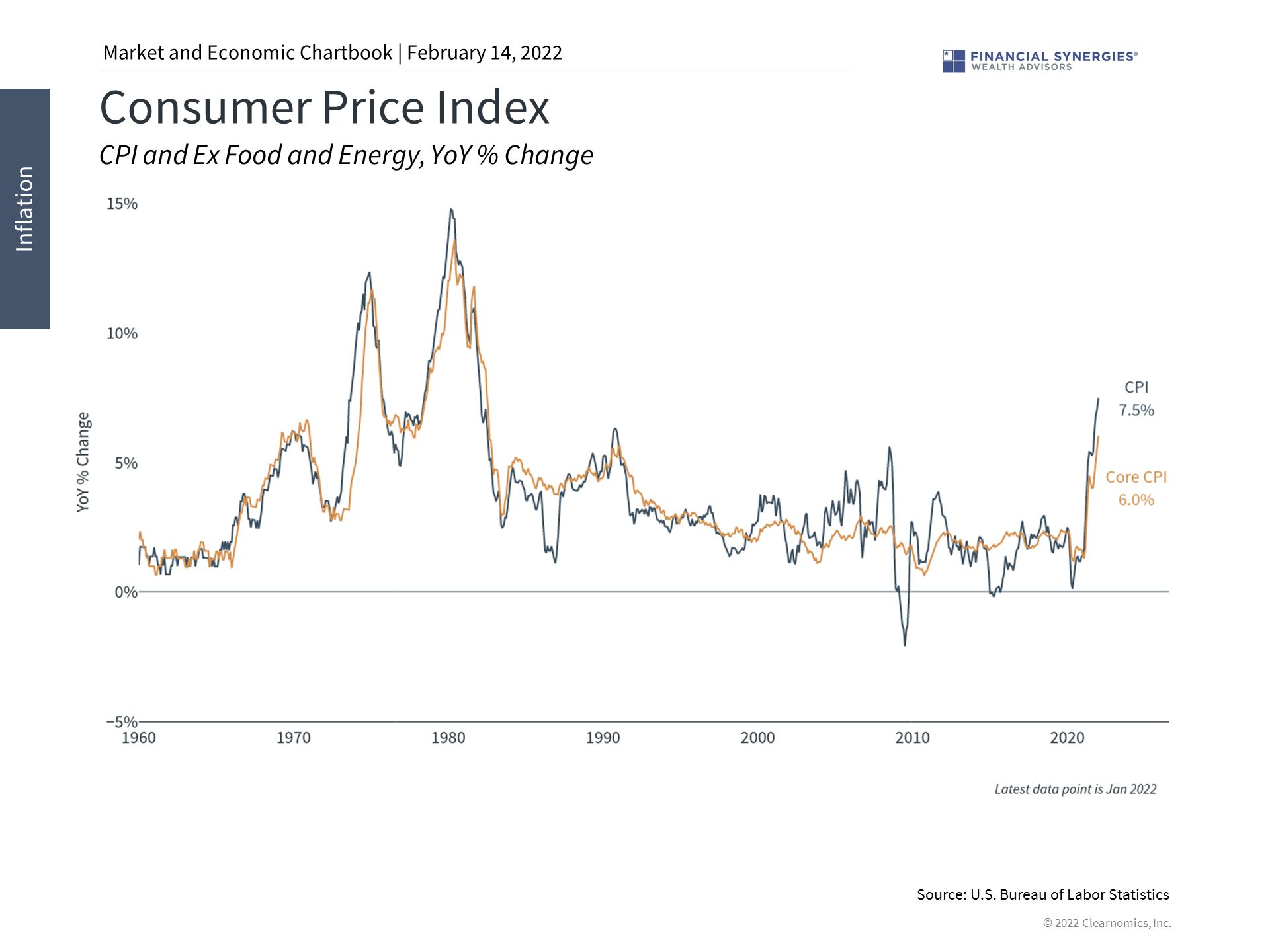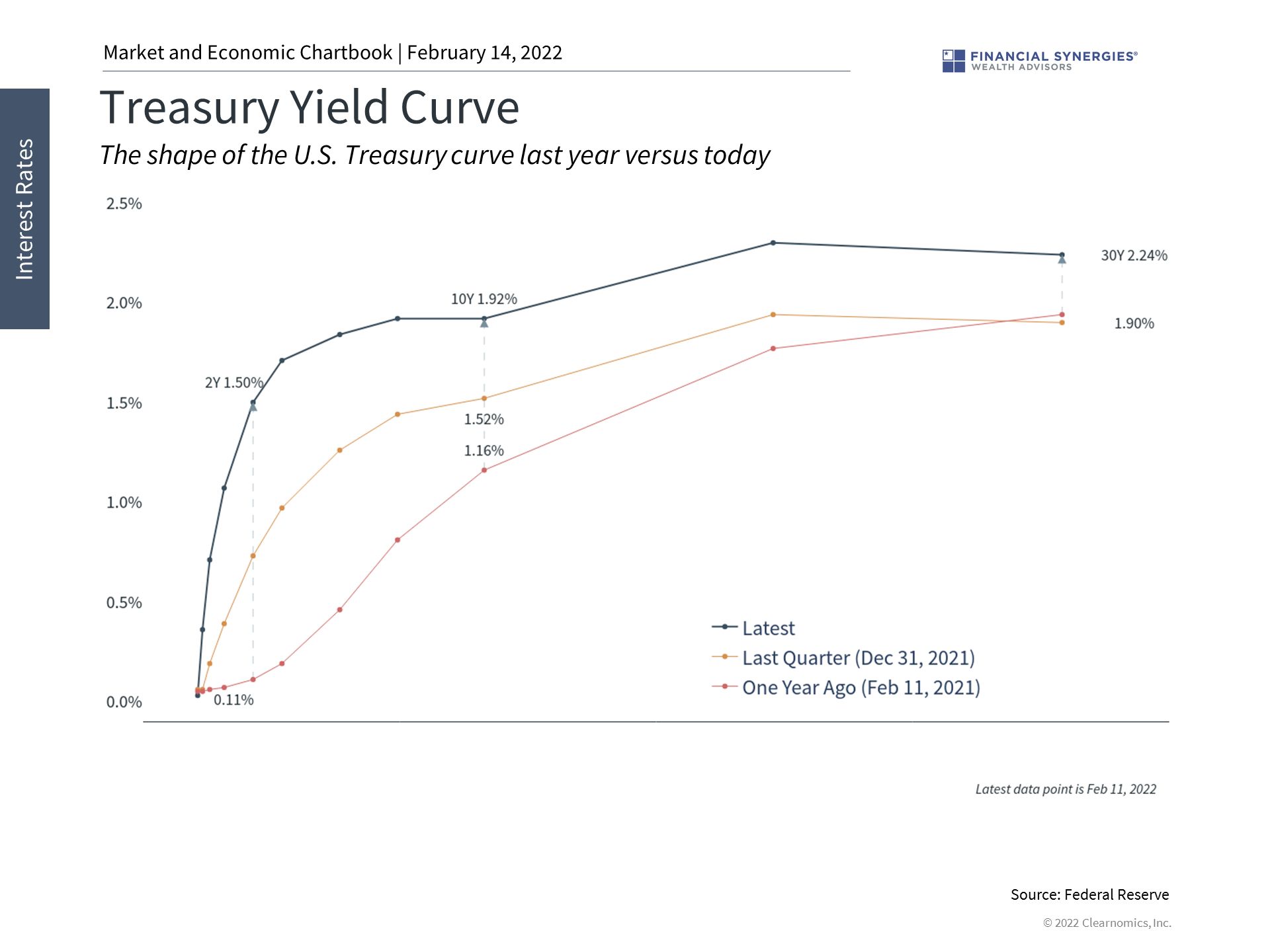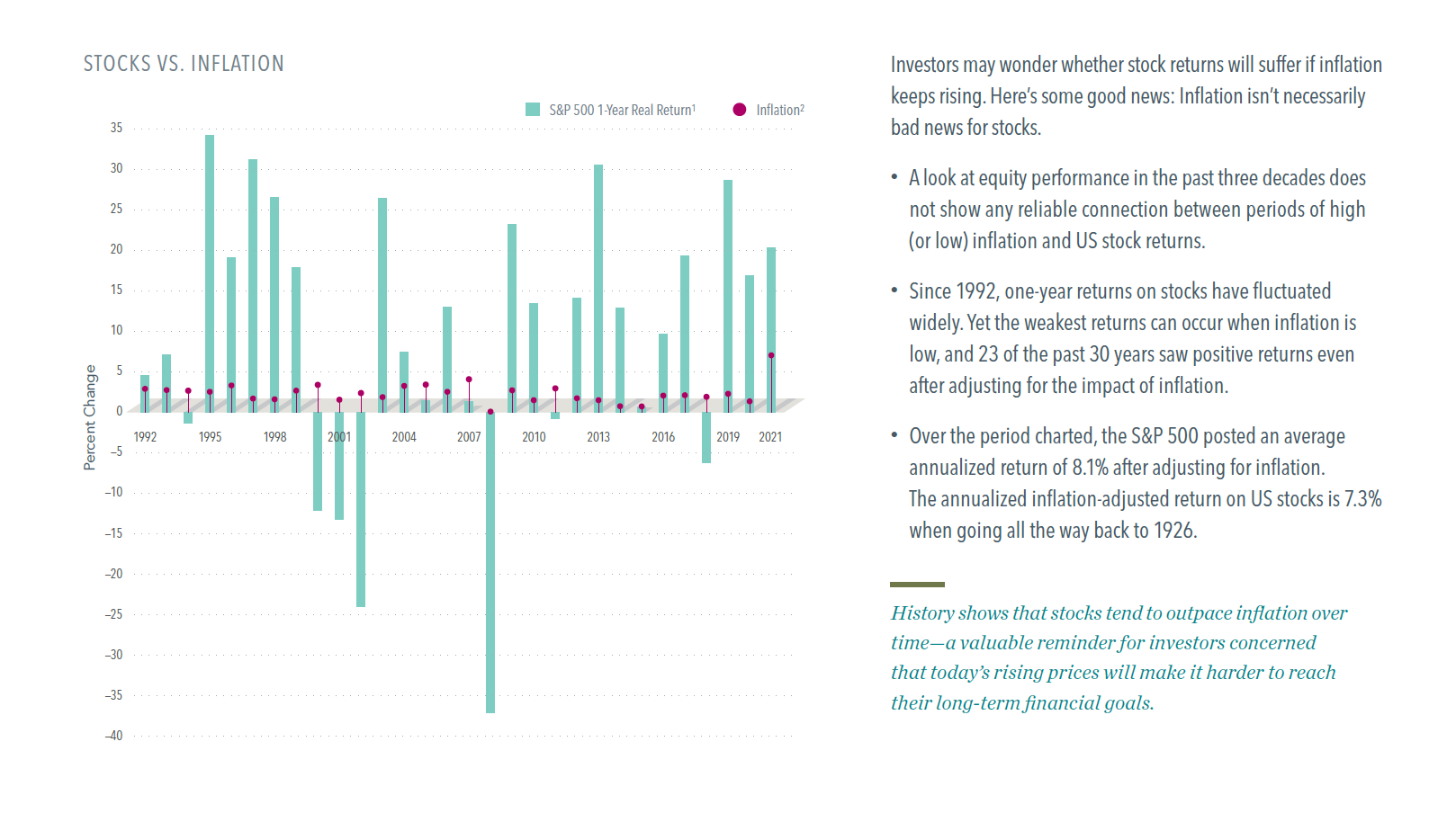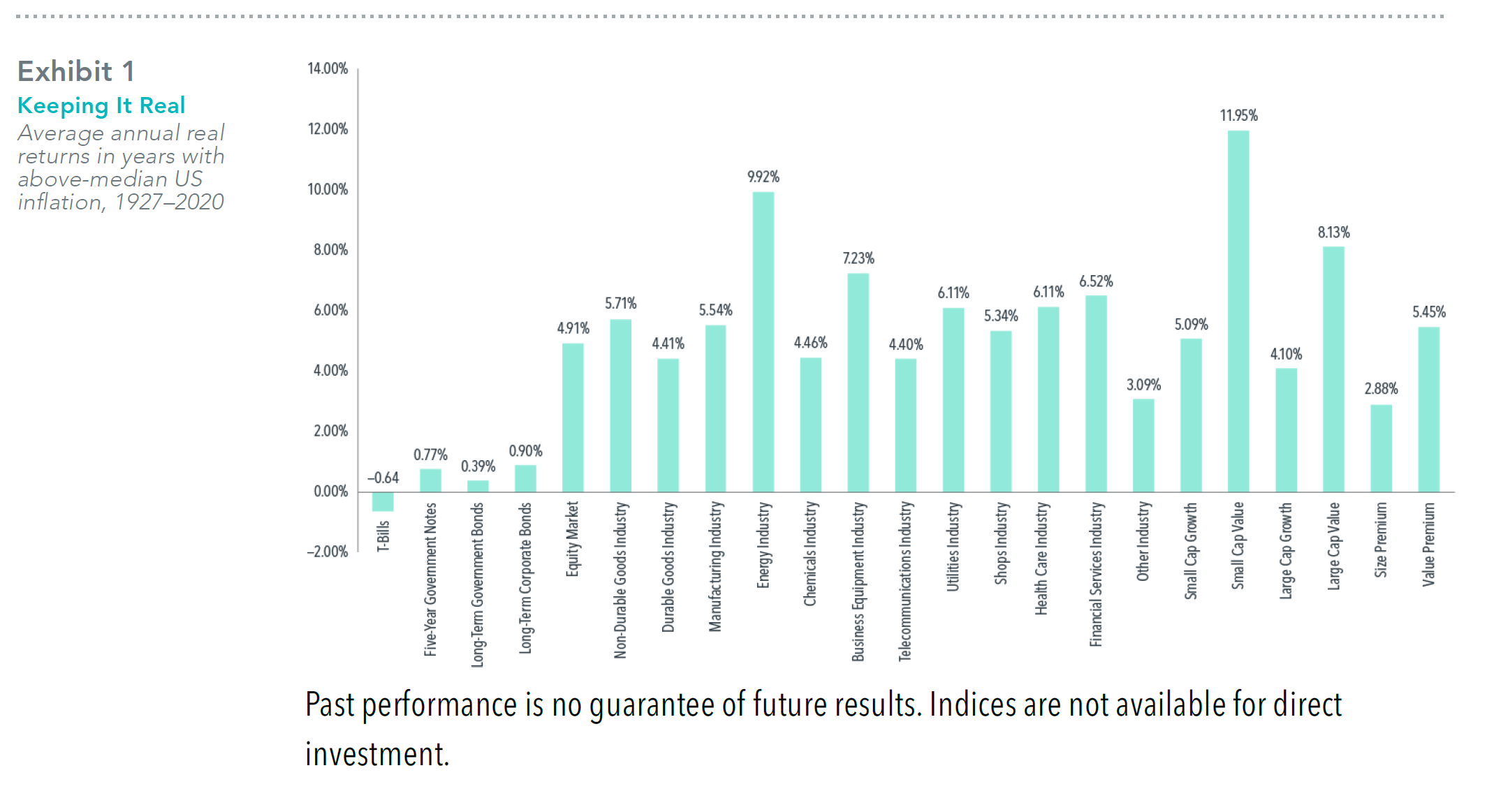[ad_1]

It seems everyone is talking about inflation these days. Last year the conversation centered more around the theoretical, as inflation hadn’t kicked in to high gear. But now we’re in the thick of real inflation and the conversation is hitting closer to home.
I’ve written about this particular subject probably more than any other over the last year or so. Here are a couple articles just for further reference:
I don’t want to exhaust the topic of inflation, so I’ll skip the very basics and speak more to the impact on client investment portfolios.
We all understand inflation is generally an increase in prices and decrease in purchasing power.
Here’s Where We Are

Last week, the latest report on CPI (Consumer Price Index), our inflation gauge, accelerated at an annual rate of 7.5% in January – a four decade high. Yields, which rise when bond prices fall, had hovered in a narrow range but jumped immediately after the report.

The yield on 10-year treasury bonds briefly spiked to 2%. And you can see from the chart above that rates are pretty much double what they were from a year ago.
Inflation and Your Stocks
Will inflation kill stock returns? If history is any guide, the answer is no.

There has not been any reliable long-term connection between periods of high (or low) inflation and stock returns. And the average inflation-adjusted return on US stocks going back to 1926 is an impressive 7.3%.
Now, in the short-term, spikes in inflation can obviously jar the market. Recent volatility is indicative of this. But, as with any short-term market gyration, it’s best to stay the course rather than panic.
Inflation and Your Bonds
It’s not so much inflation that impacts bonds, but rather the extent to which interest rates increase due to a rise in inflation. Generally, as rates rise bond prices fall, which is bad for existing bonds in your portfolio.
The Fed is expected to raise rates several times in 2022. How many times, and by how much, is open to debate. This is their most effective tool for fighting runaway inflation, and it is necessary.
This may not be a fun time for bonds, but it won’t last forever. We don’t dump stocks when they experience hard times, and we should not look at bonds any differently. We must remember the reasons we hold bonds in the first place: diversification, stability, and risk mitigation to a stock portfolio.
And finally, let’s look at how various asset classes and sectors of the market have done during periods of above average inflation.

Pretty impressive. These are “real” returns reduced by inflation and they are positive for all assets other than cash. Even bonds made money.
Conclusion
We are not dismissive of inflation and it’s short-term risks. The impact is real and undeniable.
But the best remedy for inflation has, and will always be a diversified portfolio inclusive of many different asset classes.
[ad_2]
Source links Google News

